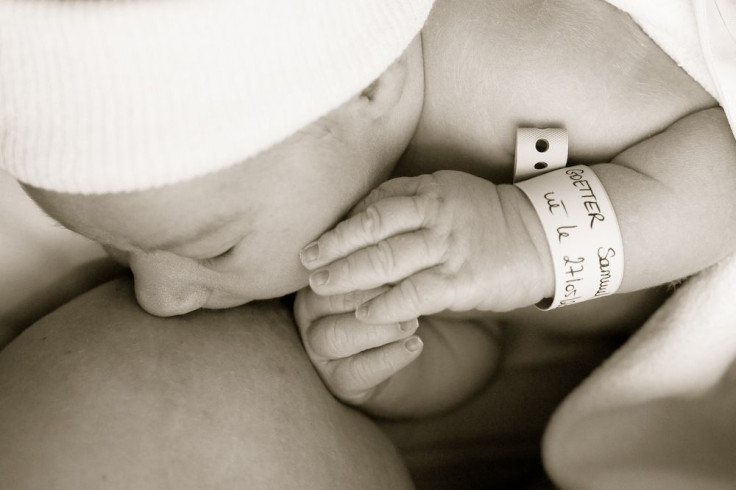Vitamin D In Breastmilk Isn't Enough; Kids Who Don't Get Supplements After Age 1 Risk Rickets

A new study from researchers at St. Michael’s Hospital in Toronto reveals the risk year-old children face if they’re still breastfeeding and not taking vitamin D supplements. Published in the American Journal of Public Health, the study found these kids, even if they’re eating solid foods, are at an increased risk for developing soft and weak bones.
The World Health Organization recommends mothers breastfeed exclusively for the first six months of a baby’s life, then they can begin to give complementary solid foods. However, breastmilk alone does not provide infants with enough vitamin D to keep them healthy, typically providing about 25 IU (international units) per liter. For this reason, the American Academy of Pediatrics recommends all breastfed infants receive a minimum of 400 IU of vitamin D each day.
This supplementation is especially important because it's recommended that infants up to 6 months old be kept out of the sun — the greatest contributor to vitamin D production — due to their sensitive skin, which can’t handle sunscreen. Furthermore, those between 6 and 12 months old should still have minimum exposure. Vitamin D is crucial to strengthening bones and helping absorb minerals like calcium, iron, magnesium, phosphate, and zinc. Without it, children risk developing rickets, a condition characterized by muscle weakness, delayed growth, and skeletal deformities.
With the current study, researchers were interested in seeing how much higher this risk was when children continued to breastfeed after age 1 without receiving vitamin D supplements. So, they examined blood samples from 2,500 children aged 1 to 5 years old, and measured levels of vitamin D. They also tracked the age of the children when blood was drawn, and for how long each was breastfed. They found that for every month a child was breastfed after their first birthday, vitamin D deficiency rose by 6 percent. By the time the child turned 2 years old, they had a 16-percent chance of being deficient. And by age 3, that risk increased to 29 percent.
While any child who isn’t getting supplementation is at risk for vitamin D deficiency, kids who live in northern countries where UV exposure is low face a special risk, pediatrician and study co-author Dr. Jonathon Maguire said in a press release.
With the children involved in the study, the researchers said normal food had no effect on vitamin D levels. In part, this is because even vitamin D-rich foods like yogurt, egg yolks, and swiss cheese have insufficient levels of the vitamin. Experts advise parents to feed their babies 400 IU of vitamin D for as long as they’re breastfeeding. Once the baby is weaned, they should receive at least 32 ounces of vitamin D-fortified formula a day. By providing your baby with this vital nutrient, caregivers can ensure their baby has a lower risk of early developmental problems.
Source: Maguire J, et al. American Journal of Public Health . 2016.



























